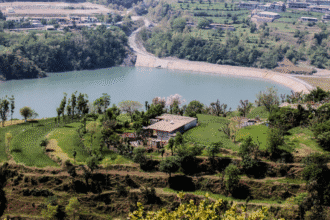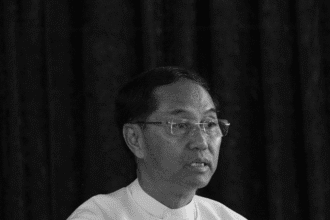Before being cleared of murder, 89-year-old Japanese man Iwao Hakamata spent almost half his death sentence. One of the most divisive judicial disputes in Japan was his erroneous conviction in 1968 for killing his boss, his wife, and their two children. One of Japan’s most hotly contested court decisions, the case took decades to settle and underlined grave issues about the Japanese legal system and its dependence on confessions.
The crime occurred in 1966 while Hakamata was employed at a Shizuoka, west of Tokyo miso processing plant. Along with their house having been set on fire, his employer and his family were discovered stabbed to death. Claiming he had also pilfered 200,000 yen in cash, authorities charged Hakamata with the killings. Although there was no clear forensic evidence, he was sentenced to death based on mostly circumstantial allegations against him.
Hakamata first denied any engagement. But he admitted following protracted questioning lasting up to twelve hours a day. Years later, he said that psychological coercion and constant beatings had forced the confession. The cruel interrogation techniques set up questions regarding the impartiality of the Japanese court system, where confessions are sometimes used as main proof in trials.
Why Was He Given a Retrial?
Hakamata’s defense team relentlessly tried to establish his innocence over the years. They offered proof showing his DNA did not match that of DNA extracted from the victims’ clothing. They further claimed that the evidence the prosecution had inserted was meant to guarantee a wrongful conviction. These claims begged serious questions regarding Japan’s legal system and dependence on confessions gleaned from protracted questioning instead of strong forensic evidence.
Citing many contradictions in the case, Hakamata’s supporters—including his sister Hideko and foreign human rights organizations—regularly demanded a retrial. Legal experts noted that substantial evidence, including clothes purportedly worn by the suspect, had been altered in the initial trial, which dubious police procedures had tarnished.
Following decades of legal disputes, a court decided in 2014 that Hakamata should get a retrial. The same year, he was let out of prison. But it took another nine years of court cases before he was formally cleared in September 2023. His case highlighted how challenging it is to reverse erroneous convictions in Japan, where retail is hardly granted, even in cases with substantial proof of innocence.
What was the public reaction to his acquittal?
The retrial and later acquittal of Hakamata were greeted with general approval. When the decision was declared, hundreds of Japanese people assembled outside the Shizuoka court to celebrate justice being done by cheering and yelling “banzai” (hurray). His release was a massive triumph for those pushing judicial reform in Japan and human rights campaigners.
Hakamata’s declining mental condition prevented him from showing up for the hearing despite the historic decision. Having spent almost five decades in solitary prison had severely damaged his psychological state. Experts say that mental decline is greatly exacerbated by the conditions of death row in Japan, where prisoners are confined in almost absolute isolation with little human contact.
His 91-year-old sister Hideko has been looking after him since his 2014 release; she spent decades clearing his reputation. Hideko’s dogged lobbying was, in many respects, crucial in making sure justice was finally done. She declared in a public speech, “I never stopped believing in my brother’s innocence.” Though at least now the world knows the truth, it is painful to witness what he has gone through.
What Payment Was Made to Him?
Monday saw a Japanese court award Hakamata 217 million yen ($1.45 million) in compensation for his erroneous conviction and detention. Arguing that 47 years of detention—making him the longest-serving death row inmate in the world—had permanently damaged his mental and physical health, his attorneys had asked for the highest possible compensation.
Agreeing with the defense, Judge Kunii Koshi decided on the matter, noting that Hakamata had experienced “very severe” suffering throughout his detention. The Japanese government will pay for the allegedly most considerable compensation for a wrongful conviction in Japanese history.
Though the cash pay is substantial, many contend that the years of agony Hakamata endured cannot be reversed with any amount of money. Human rights groups are underlining the necessity of structural, legal changes to prevent incidents in the future.
Which questions does this case beg regarding the justice system of Japan?
The situation of Hakamata has attracted global attention to Japan’s criminal justice system. Critics contend that the protracted court process and strong dependence on confessions gathered under pressure point to underlying problems. Many have noted that Japan boasts a conviction rate higher than 99%, implying undying favoritism for prosecutors.
Prolonged detention without trial and aggressive interrogation methods used in the nation have drawn criticism primarily. Detainees are often denied legal counsel during questioning, which increases their chances of forced confessions. Legal professionals worry that unjust convictions like Hakamata’s could persist unless Japan adopts a more fair and open court system.
Even if justice was finally done, Hakamata’s experience is a sobering warning of the possible fallout from erroneous convictions. His sister, Hideko, has promised to keep pushing for changes in Japan’s legal system to prevent others from meeting the same fate. “We have to stop another innocent person going through what my brother went through,” she added.
Moreover, the case has sharpened debates about the death sentence in Japan. Unlike many modern countries that have eliminated the death sentence, Japan still applies it, usually isolating prisoners for decades before execution. Critics contend that examples such as Hakamata expose the dangers of killing innocent people and demand an instantaneous reconsideration of Japan’s capital sentencing legislation.
As Japan considers this historic case, the question of how many more innocent people could be waiting for justice begs the question: How will the nation ensure that nobody else faces the same fate?








